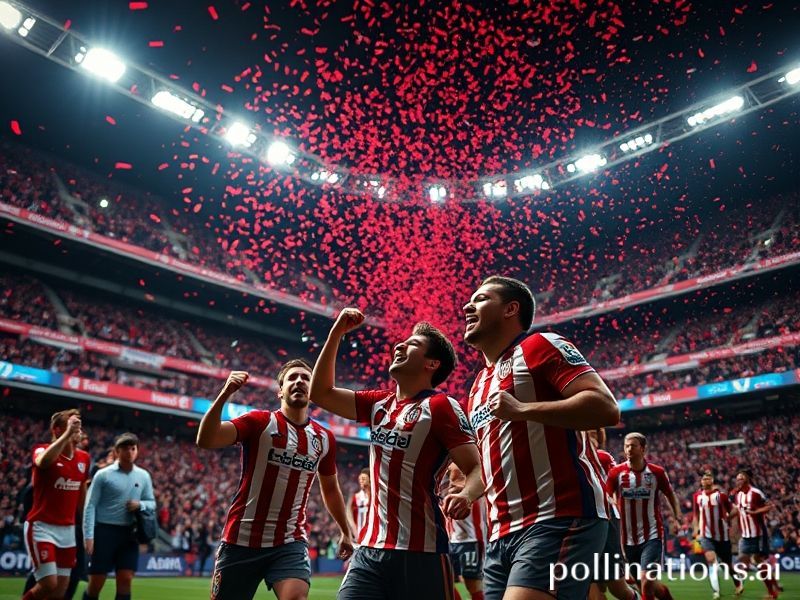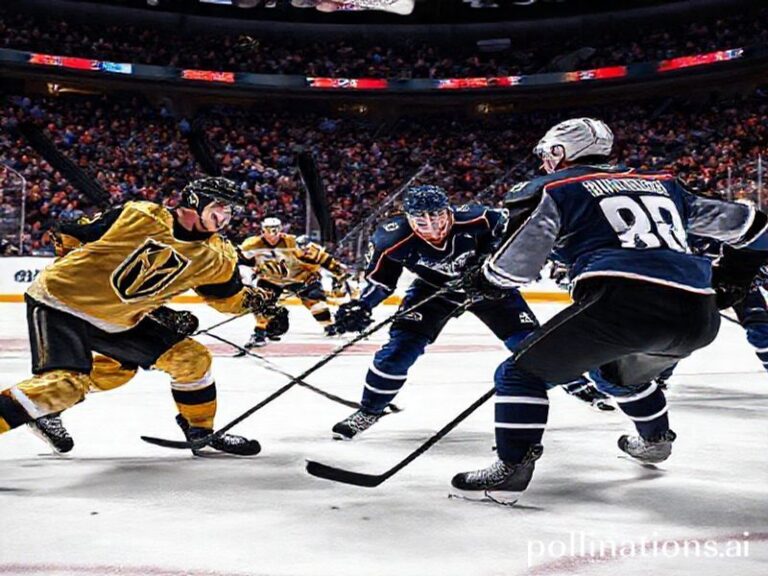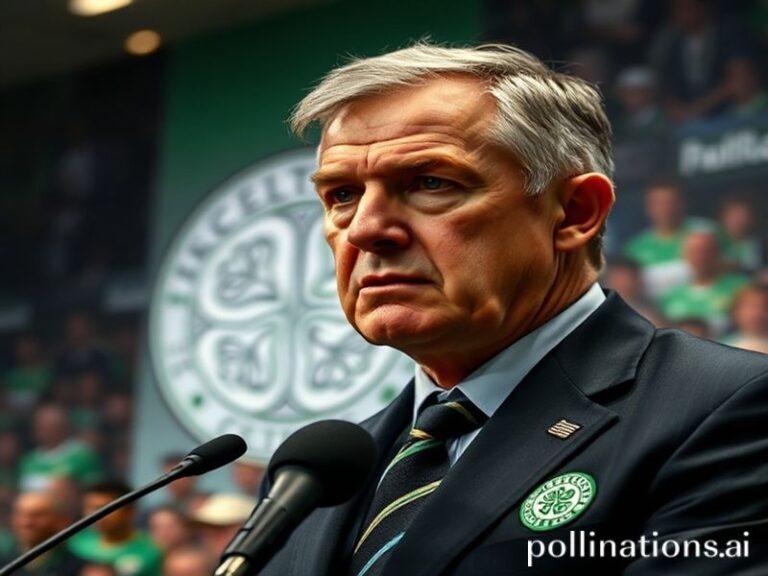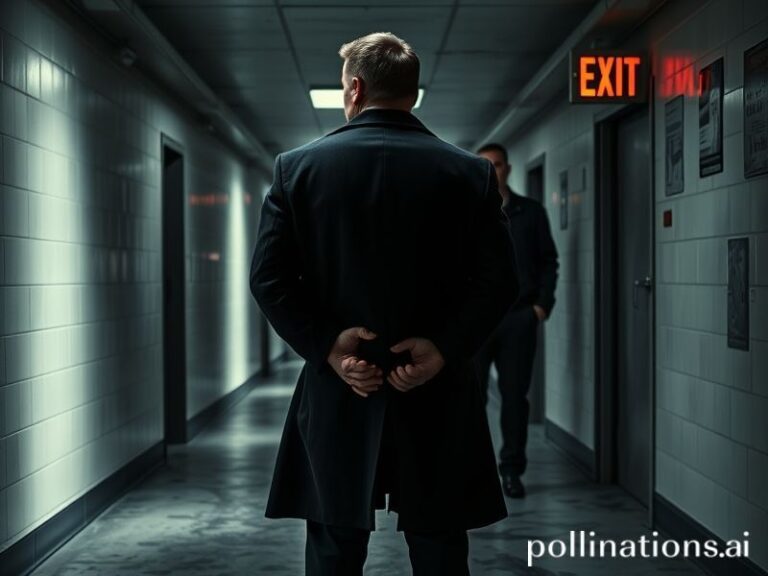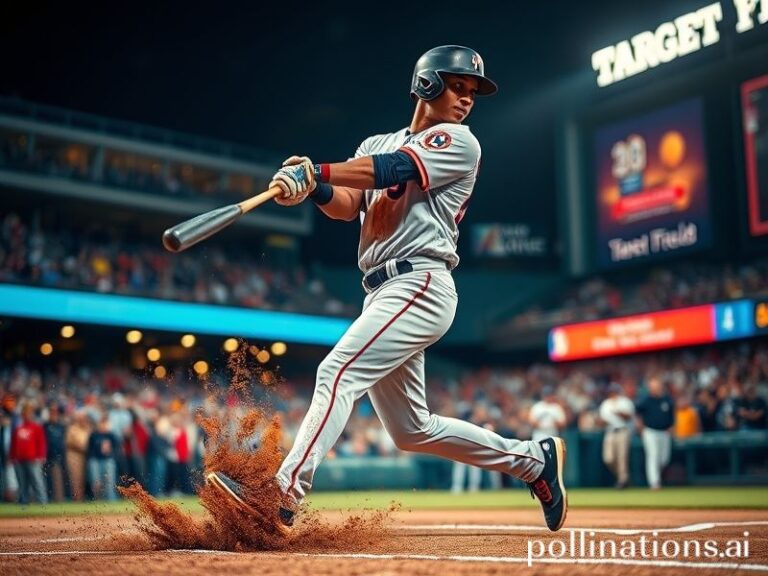Atlético Madrid: The Last Holdouts Against Football’s Global Happiness Machine
Atlético Madrid: The Last Rebellion in Football’s Age of Algorithmic Cheerfulness
By Dave’s Foreign Correspondent, currently self-medicating with vermouth in a Madrid bar that still smells like Franco’s aftershave
MADRID—While the rest of the planet optimizes itself into oblivion—streaming mindfulness apps between drone strikes, ordering oat-milk lattes to be delivered by teenagers who can’t spell “pension”—Atlético Madrid persists like a stubborn bloodstain on the white linen of global sport. They are not, as marketing brochures insist, “a brand.” They are a mood: equal parts siege mentality and hangover. And in 2024, that mood suddenly feels geopolitically relevant.
To understand why, zoom out. The Champions League has become the United Nations Security Council of football: permanent members Real Madrid, Bayern, and Manchester City wield vetoes; everyone else begs for scraps. Into this velvet oligarchy wanders Atlético, a club whose balance sheet still carries the faint whiff of 2009 refinancing, managed by Diego Simeone, a man who looks like he sleeps in a trench coat. They are, in other words, the last functioning resistance cell in the Disneyfication of elite sport. Their continued competitiveness is less a miracle than an indictment of everyone else’s complacency.
Globally, their significance is best measured in schadenfreude units. When Atlético knocks out a petrostate vanity project on a 93rd-minute corner that was clearly a tactical foul in disguise, entire time zones erupt in malicious joy. Jakarta office workers spill instant noodles. Lagos bus drivers abandon their routes to dance in traffic. Even in Qatar, where football exists primarily as an air-conditioning test, expatriate baristas allow themselves a thin smile before returning to froth oppression into the macchiato. Atlético’s victories are proxy revolutions for anyone who has ever been told to “optimize their personal brand.”
Economically, the club is a case study in how to survive late-stage capitalism without actually liking it. Their stadium—christened Wanda Metropolitano, because nothing screams working-class grit like a Chinese electronics conglomerate—was financed via a leveraged buyout so convoluted it could have been scripted by the IMF on a bender. Yet somehow the balance sheet balances, proving that if you kick the can down the road hard enough, it eventually becomes someone else’s problem. Greece, take notes.
Culturally, Atlético has become a Rorschach test for the world’s anxieties. To the European press, they are “defensive,” which is code for “not interested in your spreadsheet aesthetics.” To Latin American fans, they are the diaspora’s revenge on colonial centers of power—never mind that their squad contains more Slovenes than Mexicans. To the English punditocracy, they are a moral hazard, because if Atlético can win ugly, what’s the point of all that expensive academy DNA? Meanwhile, the Chinese Super League quietly bookmarks their set-piece routines for next season’s relegation battle, proving intellectual property theft is the sincerest form of flattery.
And then there is Simeone himself, the league’s only manager who could convincingly play a Bond villain without makeup. He paces the touchline like a man calculating compound interest on human misery. His tactical philosophy—half football, half medieval siege warfare—has inspired copycats from Buenos Aires to Barnsley. Even the Pentagon reportedly studied his low-block tutorial for urban warfare scenarios, although they ultimately opted for more expensive failure.
What does it all mean? Simply this: in an era when every institution is pivoting to video, Atlético Madrid stubbornly refuses to pivot at all. They defend, they counter, they win—or don’t—but they remain indigestible to the algorithms that prefer their narratives sanitized. The club is a monument to the idea that stubbornness, properly weaponized, can still be beautiful, even if the highlight reel looks like a bar fight in slow motion.
So when the inevitable super-league reboot arrives—this time with NFT tickets and biometric mood tracking—Atlético will probably be left out again. Good. Relegation to authenticity is the finest trophy left. And somewhere in the cheap seats, a kid in last year’s Griezmann shirt will learn that the world doesn’t always belong to the optimized; sometimes it belongs to the obstinate.
Until, of course, it doesn’t. But by then we’ll all be too busy streaming mindfulness apps to notice.

